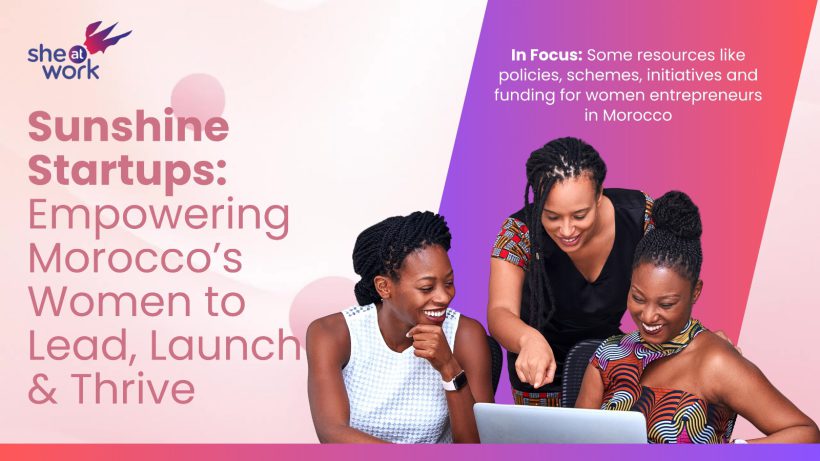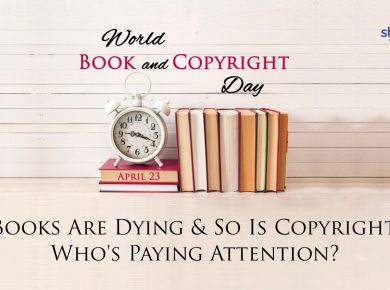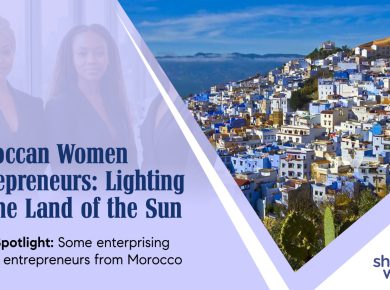In Focus: Some resources like policies, schemes, initiatives and funding for women entrepreneurs in Morocco
#WomenEntrepreneurs #MoroccoBusiness #SheLeadsMorocco #EmpowerHer #WomenInBiz #FemaleFounders #EntrepreneurshipInMorocco #IntilakaProgram #SheMeansBusiness #MoroccanInnovation
Known as “The Land of the Sun,” Morocco is not only rich in culture and history, it’s also becoming a promising landscape for women entrepreneurs. As more Moroccan women pursue their entrepreneurial dreams, the country is responding with an expanding ecosystem of resources designed to support their growth and success. From financial tools and mentorship to business networks and skill-building programs, Morocco is paving the way for inclusive and innovative entrepreneurship.
So, as far as empowering women entrepreneurs in Morocco, it’s a new era of opportunity that has opened up.
How Moroccan Women are Shaping the Future of Entrepreneurship
Government-led initiatives like the “Intilaka” program offer critical financial & advisory support, while the National Financial Inclusion Strategy is working to close the gender gap in access to credit. International partners are also playing a vital role – programmes like the EBRD’s Women in Business initiative are empowering women outside urban hubs with funding, training & access to networks.
A recent Mastercard report reveals a striking trend: 74% of Moroccan women are interested in starting their own business, and 82% of existing women entrepreneurs expect revenue growth in the next five ears. This signals a rising wave of confident, capable women ready to reshape Morocco’s economy.
With the right resources in place, Moroccan women are not just starting businesses – they’re building legacies.
So, let us study what are some resources like policies, schemes and funding that are available for women entrepreneurs in Morocco.
- Policies
After Morocco gained its independence from France in 1956, it’s noticeable that women’s rights have come upfront and there have been many changes too. And, it is seen that across the nation, women continue to fight for their rights in legal, social, political and economic contexts. Although work remains, local organizations have made great strides in improving the status of women’s rights in Morocco.
Morocco’s Constitution addresses the issue of women’s rights. Article 19 of the 2011 Constitution states, “The man and the woman enjoy, in equality, the rights and freedoms of civil, political, economic, social, cultural and environmental character.” This is a general guarantee of gender and matrimonial equality. Moreover, there have been numerous other ratifications in the Moroccan legislature that correlate to this statement.
To continue improving the status of women’s rights in Morocco, it is critical that the justice system needed strengthening; and addressing social and cultural barriers is also important, as many gender limitations stem from conservative or patriarchal views.
Two notable organizations fighting to raise the status of women’s rights in Morocco are – the Democratic Association for Moroccan Women and the Mobilizing for Rights Associates (MRA) work within the community and advocate for legal reforms. These reforms promote women’s social, economic and political equality, monitor international human rights compliance and assist women’s rights campaigns.
Moving forward, although Morocco has made improvements in women’s rights, work remains. Women across the country are continuing to fight for equality in all contexts. Moving forward, women’s rights organizations continue to advocate for the safety and liberty of all Moroccan women.
On July 31, 2021, the Moroccan Parliament adopted a reform that did represent a big step forward in helping close the country’s gender gap. It involved a new amended law on public limited companies to promote balanced representation of women and men in corporate governance bodies (law 19.20 modifying and completing law 17-95 related to public limited companies). It set mandatory quotas for women on the boards of publicly traded companies, with a target of (at least) 30% female representation by 2024, and 40% by 2027.
This law is the result of exemplary cooperation between the government, the parliament & civil society, supported by the creation of a task force by UN Women, including women personally involved in gender advocacy, and several representatives of the ‘Club des Femmes Administrateurs’ in Morocco.
The World Bank, which supports initiatives that promote greater economic inclusion of women and increased female representation in corporate governance bodies, supported this exemplary effort as one of the key objectives of its $450 million Digital and Financial Inclusion II budget support program to the Moroccan government in 2021.
- SheTrades Morocco Project
It is significant that thanks to support from the SheTrades Morocco project, many medium-sized enterprises and cooperatives in Morocco have learned quality management and food safety standards, marketing strategy & digital marketing.
SheTrades aims to increase the participation of women-owned small and medium-sized enterprises and cooperatives operating in the agri-food sector, by improving their competitiveness and strengthening their market linkages.
The project aligns with government efforts to improve the lives of women and their families, to strengthen the role of Moroccan women in the overall development process of the kingdom and to make use of the immense potential of women’s enterprises and cooperatives for a sustainable and inclusive economy.
Launched in September 2020 by the International Trade Centre, the Ministry of Industry and Trade and in collaboration with the Moroccan Agency for Investment and Export Development, the project was funded by the International Islamic Trade Finance Corporation, the Islamic Development Bank and the Trade Facilitation Office of Canada.
The project seeks to enable Moroccan women to benefit from economic participation focusing on processed foods value chains. Within the framework of the International Trade Centre’s SheTrades Initiative, the project will work with key public and private stakeholders to address issues that are holding back Moroccan women from fulfilling their economic potential.
More competitive enterprises in this key sector will contribute to achieving targets linked to the 2030 Agenda, particularly related to SDG 8 “promoting sustained, inclusive and sustainable economic growth, full and productive employment”, SDG 9 “industry, innovation & infrastructure” and SDG 5 “gender equality”.
So, SheTrades Morocco works to advocate for a conducive business environment for women entrepreneurs, give women entrepreneurs access to the skills and support systems required to run successful businesses, and connect women-owned enterprises to local, regional, and international markets.
The SheTrades initiative has contributed to a more inclusive economic growth in Morocco through increased participation of women entrepreneurs in trade.
- Women’s Empowerment through Sustainable Entrepreneurship (WESE)
The WESE project, funded by the Government of Canada, CARE supports the creation of Village Savings and Loan Associations (VSLA) known to have an impact at various levels – political, economic, social and individual.
It fills the gaps in women’s personal knowledge and skills (technical skills in how to set up and grow a business, and personally in how to assess their own motivation and ability to engage in business as women), as well as that of players generally in the entrepreneurial ecosystem in rural Morocco.
The objective is – to grow the ability of rural women to be independent and participate in economic life by helping them to be more proactive technically including managing Village Savings & Loan Associations, and by improving access to existing companies and cooperatives run by women in local, national and/or international markets, access to financial services, and access to business development support programs.
The groups targeted are: Marginalized rural women with low incomes and their individual or collective microenterprises, and established individual or collective enterprises in rural areas run by women (total: 3,040 women). The location is – in four communes in the Marrakesh-Safi region of Morocco. The duration varies between May 2018 to August 2026.
https://care.ca/projects/wese-womens-empowerment-through-sustainable-entrepreneurship/
- ILO WAFIRA project
Phase I of WAFIRA is nearing its conclusion, and was marked by a closing event in January 2025 in Rabat. It was attended by women entrepreneurs, representatives from the Secretary of State for Migration (SEM) of the Ministry of Inclusion, Social Security and Migration of Spain, the Moroccan Ministry of Economic Inclusion, Small Business, Employment and Skills (MIEPEEC), ANAPEC, Spanish Agri-Food Cooperatives-
Andalusia, and the EU, and other key social partners.
After ILO WAFIRA project’s successful first phase, plans are underway to expand the project’s approach across different countries, ensuring better economic opportunities for circular migrant workers. 209 women have successfully launched and expanded their business, thanks to the training and support facilitated by ILO in collaboration with the Moroccan National Agency for Employment and Skills (ANAPEC).
Every year, about 15,000 women participate in the circular migration programme between Morocco and Spain. Funded by the European Union through the Migration Partnership Facility (MPF), WAFIRA aims to advance economic, social and cultural rights of migrant women, promoting decent work opportunities and facilitating their meaningful integration into their communities.
WAFIRA adopts a capacity-building approach designed to support migrant women throughout their migration journey, ensuring they achieve economic independence upon their return to Morocco. A central focus of this is to develop income-generating activities.
The success of WAFIRA lies in understanding and addressing the root causes of challenges faced by migrant women. The resulting changes must be locally-driven with gender equality and women’s economic empowerment at the core.
The WAFIRA project is a pilot initiative that has trained and supported 250 Moroccan rural women engaged in the circular migration programme to Spain. The ultimate goal is to advance the economic empowerment of migrant women and their sustainable socio-economic reintegration into their home economies. Financially supported by the European Union and coordinated in Morocco by the ILO, WAFIRA has demonstrated that women’s entrepreneurship development is a powerful tool for achieving decent work and economic stability for migrant workers.
https://www.ilo.org/resource/article/women%E2%80%99s-entrepreneurship-development-openspathways-decent-work-circular
- The Assafae Association for sustainable development
The Assafae Association for sustainable development provides concrete assistance to entrepreneurs, especially women, in the Drâa Tafilalet region south of the Atlas Mountains.
Founded in 2000, Assafae focuses on economically empowering women, particularly those from rural regions with inadequate education. The organization assists these women in developing professional and management abilities, allowing them to engage in income-generating enterprises such as crafts, sewing, cooking, catering, and housework. Assafae emphasizes both traditional and modern ways, including the use of digital tools for market growth, which is critical for women in remote locations.
The association focuses on the economic inclusion of women, supporting them in developing professional and anagerial skills so that they are better able to engage in income-generating activities.
Market access is important for these women living in these rather isolated areas, where access to the country’s main urban and peri-urban zones is difficult. Here, the digitalization of sales processes becomes even more important.
Assafae supports around 150 projects a year, representing some 200 women, to whom it awards a diploma. Support starts at the project’s inception and continues to its implementation.
The association directs beneficiaries towards financing organizations and supports them in their administrative procedures at the regional and national levels. It puts them in touch with the main players involved in supporting entrepreneurs, including the Agence nationale de promotion de l’emploi et des compétences (Anapec), Ana Moukawil, Forsa and the Initiative nationale pour le développement humain (INDH).
Assafae also offers training in marketing, customer loyalty, packaging & sales. It helps these women entrepreneurs to participate in trade fairs, where they can present their products to a wider public and find new outlets and customers.
One of the association’s major challenges is – to help women move beyond survival production and generate permanent jobs. This requires better integration into the value chains of the local and regional economy, and greater synergy between different players in the ecosystem (training organizations, public players, businesspeople, experts in different fields).
The association also works on changing mindsets – Firstly among women, by instilling in them the right reflexes in terms of business conduct, and among men. For the past two years, it has been organizing awareness-raising workshops for the spouses of women entrepreneurs to help them better understand the issues and challenges of female entrepreneurship. Given the success of these workshops, Assafae plans to organized others for the benefit of families.
The results of its action made Assafae proud: in addition to training women in entrepreneurship, its beneficiaries include women who have entered local, regional, and even national politics. This just goes to show that entrepreneurship opens new horizons.
https://www.afdb.org/en/success-stories/morocco-assafae-association-sustainable-development-concrete-support-women-entrepreneurs-68479
- African Continental Free Trade Area (AfCFTA)
The main purpose of African Continental Free Trade Area (AfCFTA) is – to create a single continental market for goods and services in Africa. It further aims to reduce trading problems such as different regulations from one African country to another.
The mission of the AfCFTA is that it focuses on accelerating intra-African trade and boosting Africa’s trading position in the global market by strengthening Africa’s common voice and policy space in global trade negotiations.
Africa stands out from the rest of the world with the highest proportion of women entrepreneurs, with 24 % of its entrepreneurs being female. However, African, female entrepreneurs’ share in cross-border trade and investment remains far lower than men’s and their needs and perspectives are seldom taken into account in the regional integration process.
Incidentally, Africa is full of challenges, but it also offers huge opportunities for migrant women, and can provide a bright future for those who wish to start a business, when you look at the opportunities currently opening up to female Moroccan and African entrepreneurs, thanks to the African Continental Free Trade Zone (AfCFTA). In fact, AfCFTA is full of opportunities for women entrepreneurs in Morocco and Africa.
World Bank estimates show that the AfCFTA could raise Africa’s exports to the rest of the world by 32% by 2035 and catalyze foreign direct investment, which is expected to increase by between 111% and 159%.
In February 2025 the Economic Commission for Africa (ECA) and the AfCFTA Secretariat signed a Memorandum of Understanding (MoU) – to enhance cooperation in supporting the effective implementation of the African Continental Free Trade Area (AfCFTA). This landmark agreement sets the stage for closer collaboration between the two institutions – to advance trade integration, industrialization, and private sector development across Africa.
A framework was established for ECA and the AfCFTA Secretariat to work together in key areas. At the launch, the ECA Executive Secretary stressed the importance of the economic integration of women for the development of their home and host countries.
ECA’s strength derives from its role as the only UN agency mandated to operate at the regional and sub-regional levels to harness resources and bring them to bear on Africa’s priorities.
The contribution by ECA to the task of carrying forward the 2030 Agenda and Agenda 2063 is centred on the Commission’s three core functions, namely, its convening function, its function as a think tank and its operational function.
Their mission is – to deliver ideas and actions for an empowered and transformed Africa; informed by the 2030 Agenda and Agenda 2063.
- EBRD’s Women in Business Programme in Morocco
The European Bank for Reconstruction and Development (EBRD) runs its Women in Business Programme in Morocco, with continued support from the European Union. The programme aims to boost the competitiveness of women-led businesses by providing financing and business advice.
The EBRD’s Women in Business program in Morocco is part of a broader effort to support women-led businesses across the Bank’s regions. Since its launch in 2014, the initiative has reached over 55,000 women, providing financing of over €485 million.
The EBRD, in partnership with the EU, has continued to extend support to women-led businesses in Morocco, with a focus on regions affected by the 2023 earthquake.
The programme provides financial resources, such as loans, to support women-led Micro, Small, and Medium-sized Enterprises (MSMEs). It also offers business advice, capacity building, and mentoring to help businesses grow.
EBRD’s Women in Business Programme drives to strengthen Moroccan economy by unleashing potential of women entrepreneurs. The Programme is supported by EU funds, for advisory services and guarantees for banks. Initial EBRD partners in the programme are BMCE Bank of Africa and BMCI (Banque marocaine pour le commerce et l’industrie).
The EBRD’s Women in Business Programme in Morocco is supported by the European Union.
https://www.ebrd.com/home/news-and-events/news/2018/ebrd-backed-by-eu-launches-women-in-business-programme-in-morocco.html
- Association of Women Business Leaders of Morocco (AFEM)
The Association of Women Business Leaders of Morocco (AFEM) unveiled its 2025-2026 strategic roadmap on December 3, 2024 introducing three programmes under the “She Impulse: Value Creator” initiative. The announcement marked a significant step toward strengthening women’s role in Morocco’s economic landscape.
The She Impulse initiative, led by AFEM, offers comprehensive support through digital learning platforms, mentorship, and funding. The initiative targets critical areas like marketing, technology, and manufacturing. Supported by major stakeholders including the EBRD, Ministry of Industry, and local banks.
The initiative comprises three distinct programs: She Learn, She Start, and She Industrial.
She Learn, developed with support from the European Bank for Reconstruction and Development (EBRD), offers an AI-powered digital learning platform focusing on management, digital marketing, and new technologies. The platform provides personalized guidance through AI agents, allowing women entrepreneurs flexible access to essential business skills.
She Start, implemented in partnership with the Casablanca-Settat Region and Bidaya incubator, targets startup project leaders. The program provides intensive support through specialized training, mentor and investor access, and technological tools to guide entrepreneurs through their project development stages.
The third component, She Industrial, developed with the Ministry of Industry and Commerce, aims to integrate women into the industrial sector. The program combines technical training, financing access, and networking opportunities to support innovative and sustainable industrial projects. It plans to finance 180 industrial projects, while She Learn aims to support hundreds of women through customized training programs.
- Some Key Initiatives
- She Impulse: Led by the Moroccan Association of Women Entrepreneurs (AFEM), this initiative offers comprehensive support through digital learning platforms, mentorship, and funding, targeting areas like marketing, technology, and manufacturing.
- Attadamoune Micro-Finance: This financial institution provides small loans, advice, and training to micro-entrepreneurs, with a particular focus on women, offering both financial and non-financial support.
- We-Fi: This initiative focuses on assisting women entrepreneurs in developing their e-commerce activities to increase sales, reach new markets, and expand their businesses.
- AFEM’s Leadership and Regional Development Plan: This plan, spearheaded by AFEM, prioritizes job creation, innovation, and business growth, with “She Impulse” as a key component.
- Mastercard: Through partnerships with organizations like Agence de Développement du Digital-ADD, Mastercard supports women entrepreneurs with financial tools, digital payment infrastructure, and cybersecurity solutions.
- CGEM (Confédération Générale des Entreprises du Maroc): This organization promotes the inclusion of women in the economy and enhances their visibility and influence in key sectors through initiatives like mentoring and networking.
- Intilaka: The Moroccan government has launched programmes like the “Intilaka” program, which provides financial support and mentorship to young entrepreneurs, with a special focus on women. The National Financial Inclusion Strategy aims to improve women’s access to credit and financial tools.
- Moroccan Parliament adopted a reform
On July 31, 2021, the Moroccan Parliament adopted a reform that was a big step forward in helping close the country’s gender gap. It involved a new amended law on public limited companies to promote balanced representation of women and men in corporate governance bodies (law 19.20 modifying and completing law 17-95 related to public limited companies). It set mandatory quotas for women on the boards of publicly traded companies, with a target of (at least) 30% female representation by 2024, and
40% by 2027.
This law is the result of exemplary cooperation between the government, the parliament, and civil society, supported by the creation of a task force by UN Women, including women personally involved in gender advocacy, and several representatives of the ‘Club des Femmes Administrateurs’ in Morocco.
https://blogs.worldbank.org/en/arabvoices/big-step-forward-womens-leadership-
morocco










